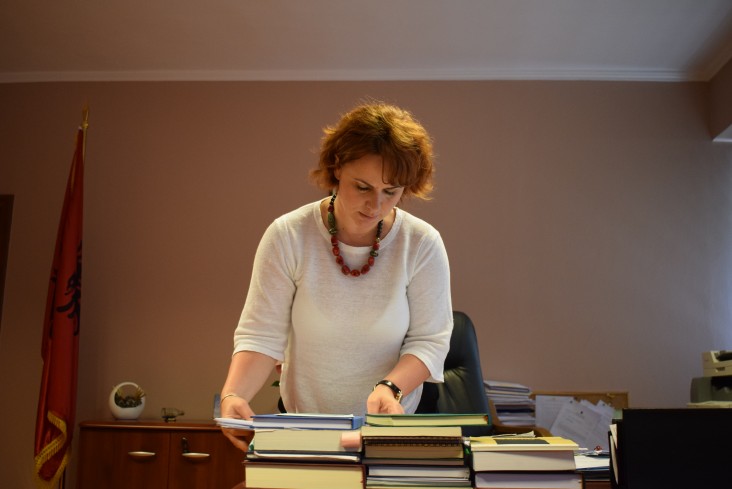Speeches Shim

CURRENT PROJECT
Albania’s justice sector – courts, judges, prosecutors and police, the legal profession – does not have the respect of the public because it is perceived as inefficient and corrupt. Interference by other branches of government, inadequate internal checks and balances, lack of leadership and frequent delays are presently identified as the most important shortcomings of the Albanian judiciary. Courts are largely underfunded with only 2.8 percent of the national budget allocated to the sector.
In March 2016, USAID began its Justice for All Project, a five year project designed to strengthen the effectiveness and transparency of the courts in Albania. To improve Albanian courts’ performance, the project will provide assistance to increase court efficiency, transparency, and accountability. Ultimately, the project aims to increase citizens’ trust in the judiciary.
PROGRAM AREAS
JUDICIAL REFORMS
USAID is supporting ongoing judicial reforms and improved judicial leadership through technical assistance in planning and coordinating the many actions necessary for the establishment of key judicial bodies to facilitate the accurate implementation of many procedures established by the new laws that govern the reforms. Special focus is the High Judicial Council as the new leadership body of the judiciary. The formation of this new body and the implementation of its functions are of special importance for the overall functioning of the judiciary. USAID will closely monitor its formation and provide technical assistance to help it properly implement it mandates.
IMPROVED COURT PERFORMANCE
Working within justice sector institutions, and building on the success of prior USAID initiatives, this project will support activities to help ensure that court sessions are held in courtrooms where the hearings are recorded verbatim and are open to the public; will improve public access to the courts; and will strengthen judicial leadership to demonstrate a more active role in the judicial reform process. Furthermore, in partnership with the OSCE Presence in Albania, this project will rollout nationwide the “Justice Without Delays” Initiative which USAID piloted with great success in the District Courts of Kruja, Korca, and Tropoja. “Justice Without Delays” introduces procedures to avoid unproductive hearings and unnecessary delays.
CIVIL SOCIETY COALITION
To promote greater public demand for improved performance in the justice sector, USAID will support civil society organizations (CSOs) that will give voice to the public’s interest in having a more effective and transparent judicial system in Albania.
INVESTIGATIVE JOURNALISM
To combat corruption and promote transparency, USAID will train journalists to engage in more fact-based, cross-border, and national investigative journalism. The project aims to also strengthen fact-checking services in Albania as a means of holding public actors more accountable for their statements and proposed programs, and will also complement efforts to monitor the performance of the courts.

Comment
Make a general inquiry or suggest an improvement.